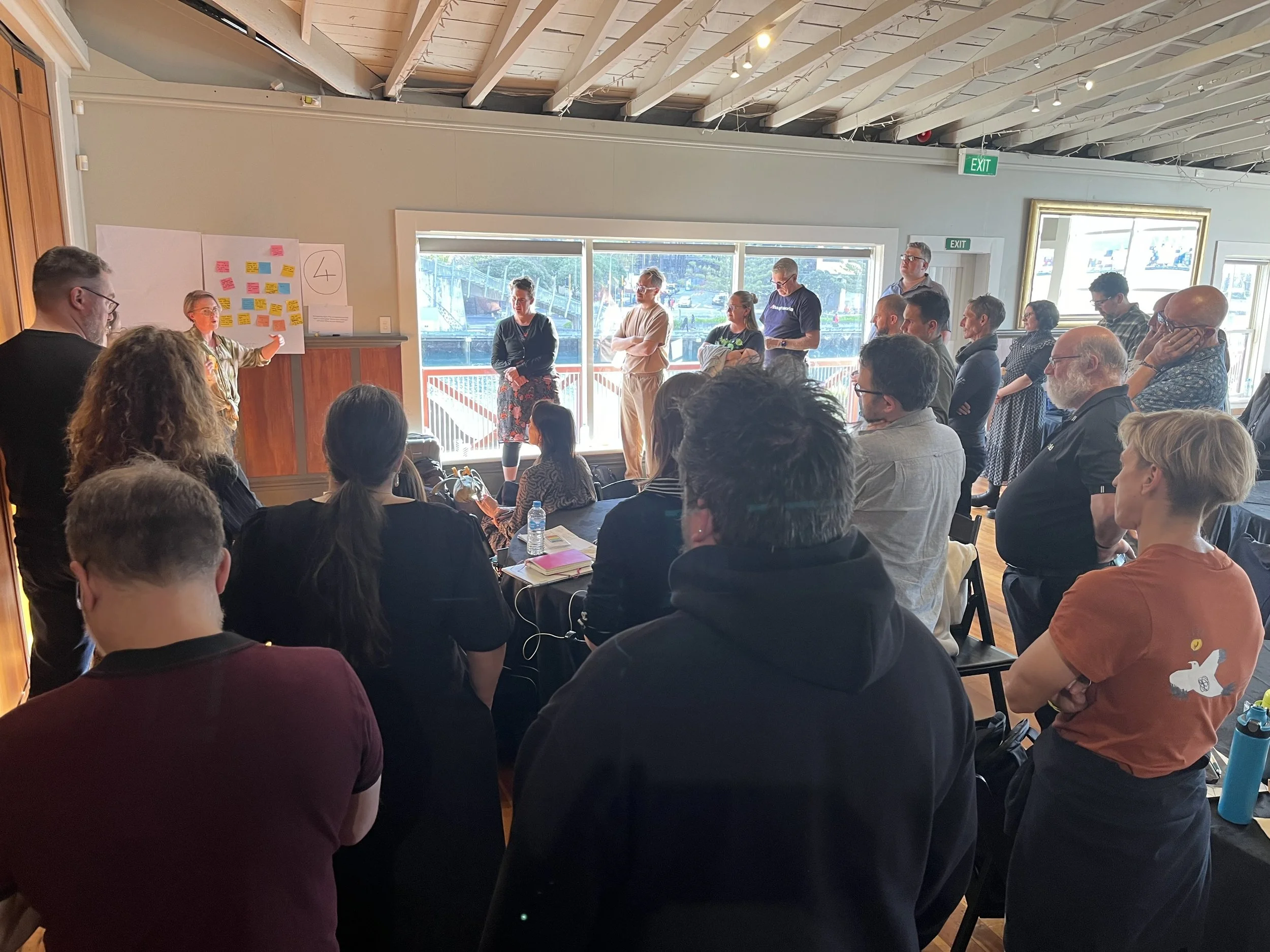Reimagining Agile at JAFAC: Back to Basics and Forward to the Future
The Reimagining Agile workshop at JAFAC was a remarkable event where the New Zealand Agile community came together to discuss, problem-solve, and envision the future of agile. Our session was framed around the idea of Reimagining Agile, emphasizing that a single document can no longer effectively represent the diversity within the Agile community.
We questioned the continuing relevance of the Agile Manifesto, crafted in a time of dial-up internet, without smartphones or AI, in today's rapidly evolving world. While acknowledging that agile solved the problems of its time, we recognized that today we face new challenges that require us to evolve and reimagine our approach.
Gathering at the JAFAC conference in Wellington, we set out to reimagine Agile in New Zealand and contribute to the global Reimagining Agile movement.
The Workshop
Sixty participants split into small working groups to discuss specific questions and then shared their findings with the larger audience. The discussions were framed by several key questions, including:
Reimagining Agile: 5 years from now what does it look like? (AI, societal changes, changing markets, …).
What needs to shift?
What has changed in the last 23 years? What has changed in the last 3 years?
What are the stories we're telling ourselves that we need to question?
What are we not seeing? How are we not Kodak?
Why do organizations find Agile so challenging? Do the same challenges still exist? What are new challenges?
What have we lost & forgotten? What do we need to bring back?
What’s useful? What behaviors do we need? And how do we recognize those behaviors?
Key Discussions and Insights
We had insightful conversations in all our sessions. One session stood out for me in particular: “What are the stories we are telling ourselves that we need to question?”
In this discussion, we focused on the narratives we tell ourselves in the agile community that need questioning. Here are some of the narratives we came up with:
Agile will deliver better productivity
Agile is easier with dedicated teams
You shouldn’t compare teams
If only the CFO trusted us…
You need a transformation to learn Agile
You need a leadership buy-in
Velocity = Value
We need certain roles to be successful
Agile belongs in IT
We can’t consistently deliver value if we don’t know what is on the roadmap
We can measure Agile teams with the same measures we use for other teams
Each team needs to be able to work autonomously
The workforce can only be Agile in an engaging environment
We need certain ceremonies
Agile requires co-located teams to be effective
Regular feedback from customers, stakeholders, and team members is essential for continuous improvement and alignment
Leaders need to be facilitators who empower teams
Maintaining high technical standards and prioritizing good design are key to sustaining long-term agility
Reflections and Next Steps
The Reimagine Agile workshop helped us frame constructive questions and brought together diverse voices to have real, meaningful conversations about the future of agile. The format worked well, fostering genuine dialogue.
We encourage you to run your own Reimagine Agile workshops (contact me if you’d like to have guidance) in your organizations, at your conferences, and in meetups. These discussions can help shape the future of agility, ensuring it remains relevant and effective in our ever-changing world.
Let us know in the comments if you can add to the narratives we need to question or if you have thoughts on any of the other questions! And don’t forget to head over to reimagineagile.org to join the movement.

